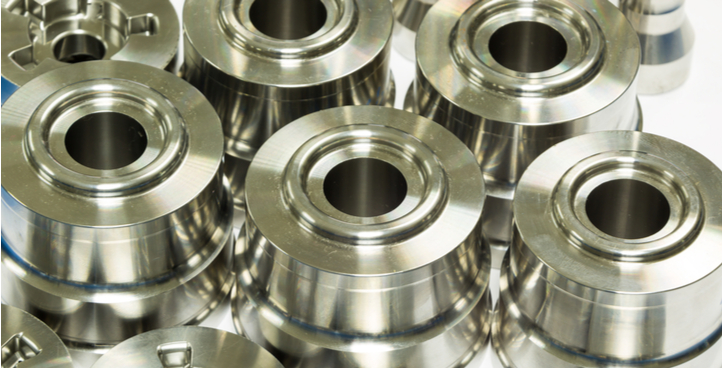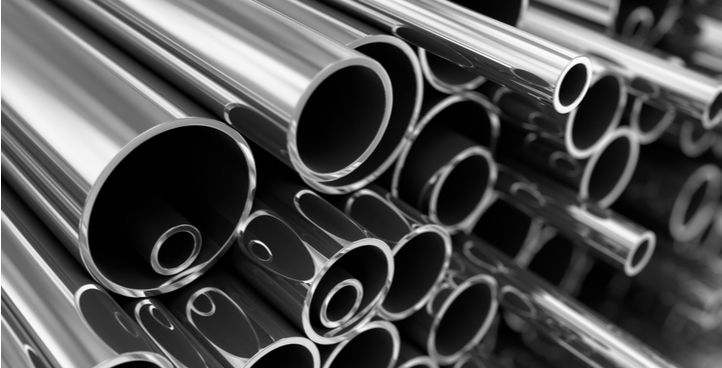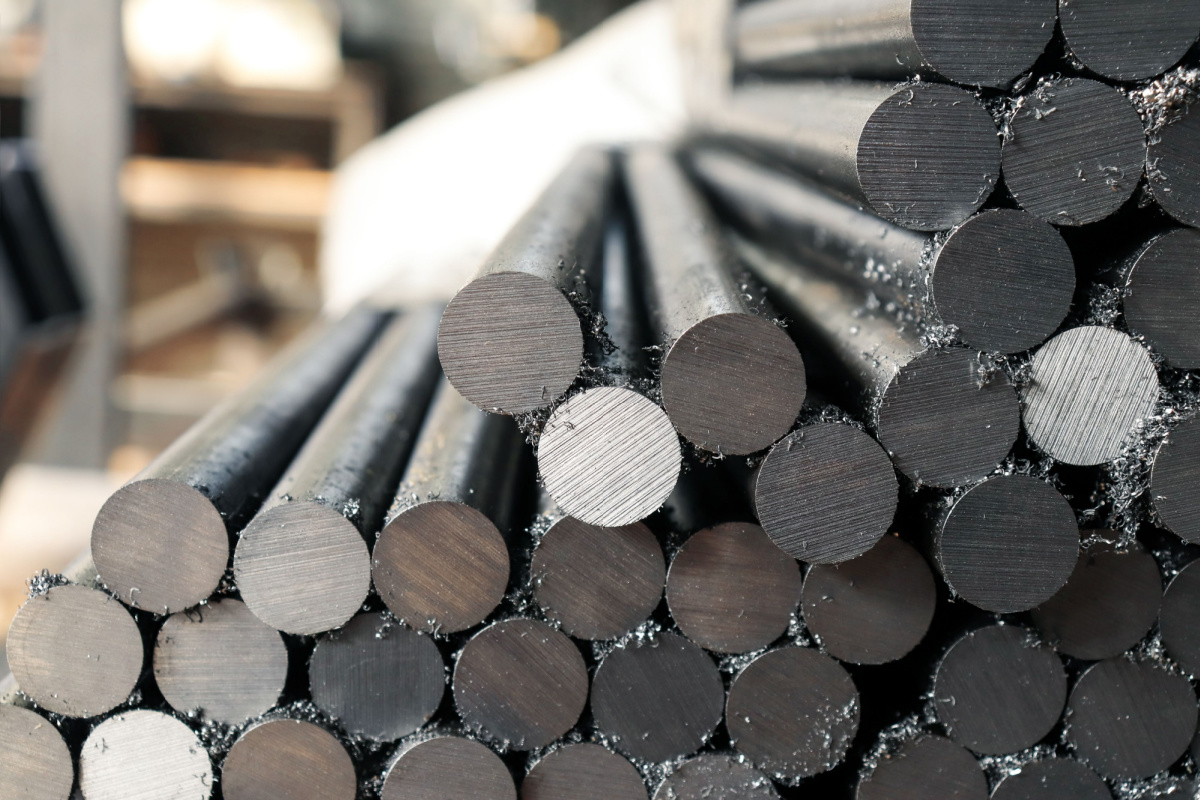
Steel Machining
Steel machining. Steel is one of the most commonly used metals for machining in the world. Things are no different at Roberson Machine Company, as we create parts, products, and tools for every sector out there. CNC steel machined parts are one of the most popular for custom made components and prototypes among our large network of industry-leading customers.
With its high levels of hardness and tensile strength, steel is not easy to work with. Machining steel requires a complete understanding of the processes that work well on this material, and the different types of steel that work better on various CNC machined parts and components. Your company needs the professionals at Roberson Machine Company.
Call us right away at 573-646-3996 or contact us online to get a quote for your next CNC steel machining project.
What Types of Steel are Used in the Roberson Machine Company CNC Machining Process?
Steel is unique in the sense that it is extremely versatile, meaning it can be transformed into a wide range of sizes and forms. As an alloy made up of numerous elements, steel has a broad range of applications that differ depending on the type of steel being used. One of the main factors to consider when machining steel is that it’s strong, even at high temperatures. The four main types of steel found at Roberson Machine Company are:
- Carbon Steel
- Automotive body panels
- Bolts
- Fixtures
- Seamless tubes
- Steel plates
- Stainless Steel
- Nickel
- Carbon
- Manganese
- Molybdenum
- Nitrogen
- Sulfur
- Copper
- Silicon
- Alloy Steel
- Pipes
- Tubes
- Plates
- Sheets
- Coils
- Bars
- Rods
- Wires
- Forged fittings
- Buttweld fittings
- Flanges
- Fasteners
- Tool Steel
Accounting for the vast majority of steel applications, carbon steels are a series of alloys of carbon and iron containing a range of 0.12 to 2 percent carbon, with elements added in specific quantities for detoxification and residual quantities of other elements. The higher the carbon content, the harder the steel is – resisting abrasion and retaining shape. Low carbon steels are more common, though due to greater ductility, lower production costs, and ease of use in our manufacturing process. These are frequently used in:
Due to its excellent corrosion resistance, high strength, and attractive appearance, stainless steel sees a wide range of uses across industrial and consumer markets. Stainless steel is used in a multitude of parts and products, from automotive and aerospace parts to bridges and sculptures to kitchen sinks and cutlery. While stainless must contain at least 10.5% chromium, the exact components and ratios will vary depending on the application. Some common additives include:
An alloy steel is a type of steel combined with more than one element. Alloying elements increase strength, hardness, and wear resistance, producing more robust and substantive steel. The alloying elements added to the base iron and carbon typically total no more than 5% of the alloy steel’s material composition. Steel alloys can be forged into various shapes for a wide range of components, such as:
Tool steels are manufactured under carefully controlled conditions with carbon content between 0.7% and 1.5% and low manganese content to reduce the possibility of cracking during water quenching. Proper heat treating of these steels is important for performance. W-type is our most commonly used tool steel due to its low costs. Tool steels are used in the cutting, forming, shearing, and stamping of metals and plastics; the extrusion of plastic components, such as pipes and vinyl window frames; and the manufacturing of dies for pressing metal powder into shapes.
Call our experienced machinists today at 573-646-3996 or contact us online.

Surface Finishes and Post-Processing Options for CNC Steel Machined Parts at Roberson Machine Company
For over 20 years, Roberson Machine Company has been providing customers with value added services – including surface finishes and post-processing options. They aim to improve the functionality and aesthetics of your parts or products. For steel parts, the following are some of our most popular finishes:
- Powder Coating – Our powder coat finish essentially involves depositing dry powder on the surface of steel. The finish is fairly thin, typically between 0.15 and 0.3 millimeters, although it does boost the part’s resistance to corrosion.
- Bead Blasting – A bead blast finish cleans corroded metal, removes cosmetic defects like textures and contaminants, and prepares a steel component for paint and/or other coating.
- Passivation – This is the process of treating or coating a metal in order to reduce the chemical reactivity of its surface. In stainless steel, passivation means removing the free iron from the surface of the metal using an acid solution to prevent rust. The process also:
- Removes surface contamination
- Reduces the risk of product contamination
- Allows you to extend system maintenance intervals
- Black oxide – Also called blackening, a black oxide finish involves dipping machined steel parts into an alkaline solution. The solution then converts the iron on the metal’s surface into a compound known as magnetite.
- Zinc coating – A zinc coating protects steel from corrosion due to its anodic properties where it will sacrificially corrode before the underlying steel. The coatings provide good protection for steel in hard waters, where the scale forming ability of the hardness salts allow for development of passive layers. This finishing is one of the least expensive and most readily available.
Are There Any Things to Worry About For My Company in Steel Machining?
With Roberson Machine Company by your side for the entirety of your CNC steel machining project, you have absolutely nothing to worry about. Call us today at 573-646-3996 or reach out to us online. We follow rigorous guidelines when it comes to machining steel, including:
- Choosing Appropriate Tooling: While this may appear straightforward, choosing the right tool for the job isn’t always obvious. It depends on the material itself, but also on the machine, the environment, and the operation at hand. With so many variables impacting tool choice for your project, our knowledgeable machinists will guide you through the options and help you choose the most efficient and effective procedure.
- Managing Temperatures: Machining results in high temperatures at the cutting point due to steel being such a strong material. So, we minimize that in our shop with coolant fluids to reduce friction and aid in chip evacuation while lessening tool wear. The cutting data can also be adjusted via our CAD and CAM software to minimize heat.
- Minimizing Vibrations: The strength of steel also means that CNC machining processes require high speeds potentially creating excessive vibration. This can severely impact finish and accuracy, as well as damaging the tool. We constantly keep an eye on:
- Tool choice
- RPM
- Workholding
- Toolholding
- Insert geometry
- Balance

Reach Out To a Leader in Steel Machining | Roberson Machine Company
Roberson Machine Company is the place to turn for all of your steel machining needs. We have clients and partners in every industry across the country who appreciate our dedication to meeting or beating deadlines, our central location, and our low costs.
Call us today at 573-646-3996 or contact us online so we can get started on your CNC steel machining.


